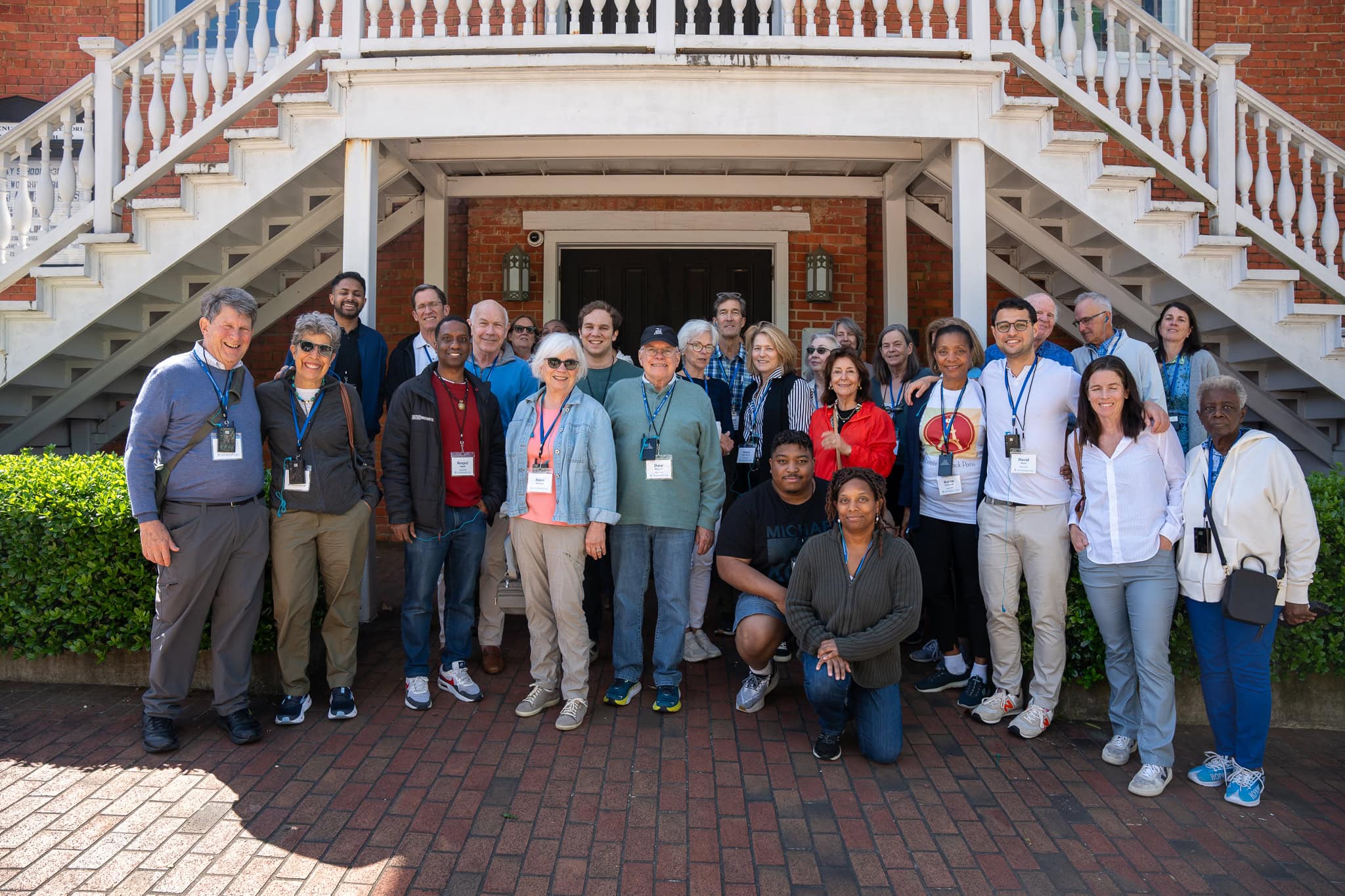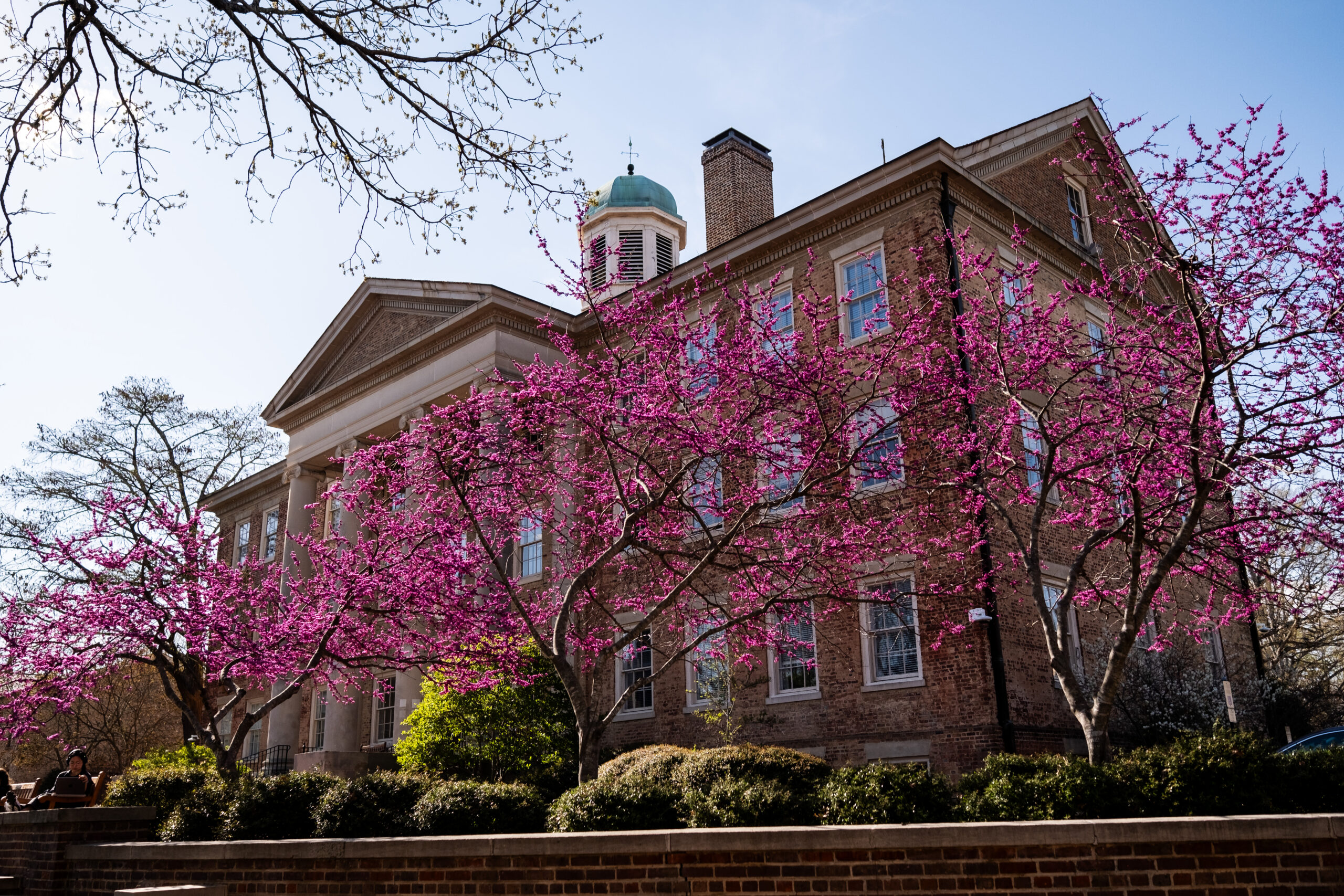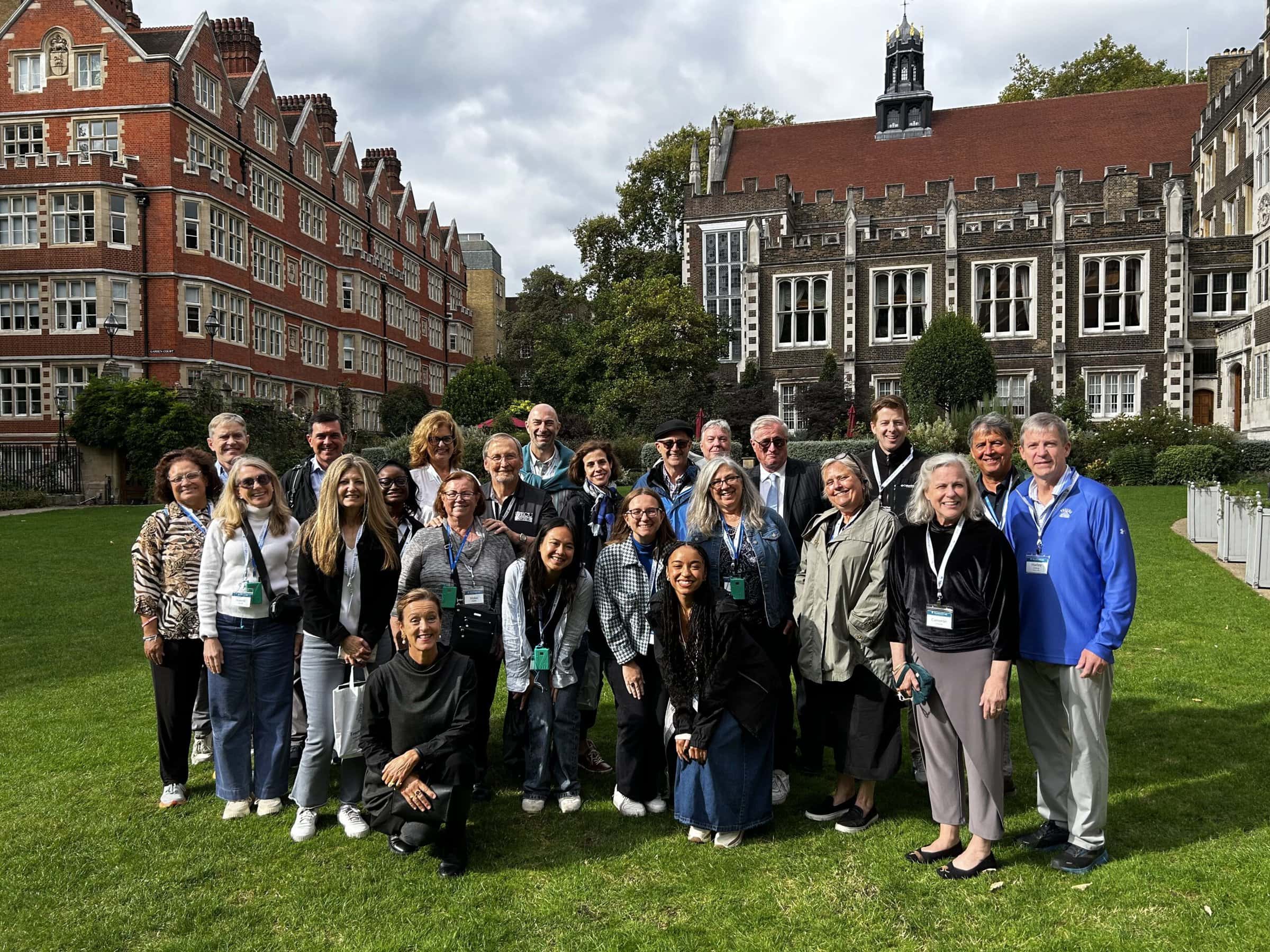
Participants on the 2024 Morehead-Cain Civil Rights tour of the South outside Dexter Avenue Baptist Church in Montgomery, Alabama.
In April, a group of around thirty alumni and their guests went on a civil rights bus tour of the South as part of Morehead-Cain’s Alumni Journeys initiative launched last fall.
For the first part of the trip, civil rights historian Taylor Branch ’68 accompanied the group throughout Montgomery, Alabama. The alumnus is known for his Pulitzer Prize-winning trilogy chronicling the life of Martin Luther King Jr., America in the King Years.
The alumni visited Dexter Avenue King Memorial Baptist Church, pastored by King and the launching point for the 1955 Montgomery bus boycott, the Freedom Rides Museum, and three sites established by the Equal Justice Initiative (founded and led by renowned attorney and social justice activist Bryan Stevenson): the Legacy Museum, National Memorial for Peace and Justice, and the newly opened Freedom Monument Sculpture Park.
For Benjeil Edghill ’98, walking in King’s footsteps reinforced for him that achieving civil rights is “an ongoing battle” in the United States.
“We must never give up on our pursuit of a more just and equitable America, because injustice anywhere is a threat to justice everywhere,” he said.
On the second day, alumni traveled to Birmingham, Alabama, to walk through the Kelly Ingram park and hear from Carolyn Maull McKinstry, an eyewitness to the Sixteenth Street Baptist Church bombing in 1963 and a lifelong civil rights activist who marched under King.
Dave Brunson ’64 reflected that although he was in his twenties during the height of the civil rights movement, the trip brought him closer to the lived experiences of Black Americans who were fighting for justice at the time.
“To listen to those who experienced the church bombings, the loss of their house to the building of an interstate . . . everything felt very personal,” the alumnus said.
For the final day of the tour, the group visited the National Civil Rights Museum at the Lorraine Motel, the site of King’s assassination, in Memphis, Tennessee. Members of Hattiloo Theatre, one of the country’s few all-Black repertory theaters, performed an original work for the group at the museum.
After lunch at the historic Four Way Restaurant, alumni went on a driving tour of the city, including stops at the I AM A MAN Plaza (adjacent to the Clayborn Temple), the gathering place for the 1968 sanitation workers’ strike, and the Slave Haven Underground Railroad Museum. The afternoon came to an end with a tour of the Stax Museum of American Soul Music.
For Steve Toben ’78, the experience facilitated “potential for powerful action across generations” of scholars.
“I cannot begin to express how meaningful the connections enabled by these trips are among alumni, staff, and current scholars,” he said.
The Foundation is grateful to Barbara Rosser Hyde ’83 and Pitt Hyde for hosting the group at their home in Memphis to conclude the trip, as well as for facilitating the tour and private performance at the National Civil Rights Museum.
View photo albums from the trip by day.
The next trip will be to London from September 22 to 29, 2024 to celebrate the 55th anniversary of the British Morehead-Cain Program. Learn more about group travel through Morehead-Cain Alumni Journeys.
“As a public health professional who works with communities of color in Chicago, I feel it is critical for me to understand the historical context behind the inequities and discrimination I see in the communities that I work with. By making these connections to history, I hope this will prepare me to be a more caring and compassionate physician, prepared to treat individuals of all backgrounds.” —Shivam Bhargava ’22, program manager at Asian Health Coalition in Chicago and a Global Health Corps U.S. Fellow


